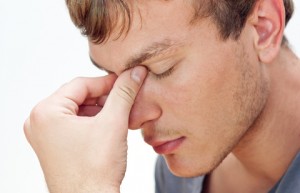
Opiate Detox

Table of Contents
If you’ve ever tried to withdraw from opiates without any medical support, you already know how hard the process can be. As the opiates leave your system and your body recovers from the sudden absence of the drugs, you may experience severe cravings, anxiety, muscle pain, sweating, a runny nose and watery eyes. Later withdrawal symptoms include nausea and vomiting, diarrhea, abdominal pain and cold sweats. The overwhelming discomfort of withdrawal makes self-detox impossible for many opiate users. Once you’ve tried and failed to quit multiple times, you may begin to feel that you’re hopelessly trapped by your addiction.
In reality, hope is available if you go through opiate detox and rehab under medical supervision at a rehabilitation facility. Under a doctor’s care, you’ll get the clinical support you need to make it through the worst of the withdrawal symptoms, so you can move on to the next phase of recovery. You can escape the cycle of addiction once and for all by working with empathetic professionals who will help you through every step of your journey, from detox to rehab and aftercare.
Challenges of Opiate Withdrawal
Opiate withdrawal is notoriously challenging, not only because of the physical discomfort that it causes, but because of the psychological side effects and the intensity of the cravings for the drugs. All opiate drugs are derived from naturally produced or synthetic opium, a highly addictive controlled substance that mimics the actions of endorphins, naturally produced chemicals that relieve pain and create a sense of well-being. Some opiates, such as heroin, are available only through illegal sources, while others, such as OxyContin, Dilaudid, morphine and methadone, are legally available with a doctor’s prescription.
- Lowering the dose or stopping the drug altogether triggers an uncontrollable desire to use again.
- Agitation, anxiety and a loss of interest in any other pleasurable activities make it extremely difficult to go without opiates.
- Because opiate pain relievers are widely prescribed for legitimate purposes, they are often easy to obtain, which makes it easy to relapse.
How Does Opiate Addiction Happen?
Opiates play a vital role in pain management, and many people who suffer from chronic pain would be unable to function without them. But their ability to interfere with the brain’s natural reward circuitry makes these drugs extremely addictive. Harvard Medical School lists the following stages in the process of opiate dependence:
- When you take an opiate drug, the active ingredient binds to the opioid receptors in your brain’s limbic system, which creates sensations of euphoria.
- In response to the influx of opiates, the brain creates even more opioid receptors, which means that you’ll need more of the drug to achieve the same pleasurable feelings (a phenomenon called “tolerance”).
- The presence of additional receptors makes it more difficult to experience pleasure from the activities you used to find enjoyable; in fact, you might have trouble experiencing pleasure at all if you aren’t high (a condition called “anhedonia”).
- The sudden withdrawal of opiates from your system causes a desire for drugs that’s beyond your control.
The Opiate Detox Process
When you’re getting ready to start opiate detox, you’ll want to know what to expect and how long your withdrawal symptoms will last. Most people who are abusing opiates naturally want to get through the detox process as quickly as possible, but it may take several days to a week or more before the drug is cleansed from your system and you start feeling better. If you go through detox in a rehabilitation center, the process may be much easier and more comfortable.
- A complete medical and psychiatric evaluation to identify any co-occurring health problems or mental health disorders
- A program to taper you slowly off the medication, so that withdrawal symptoms are minimized
- Continuous monitoring of your vital signs and physical symptoms to prevent the complications of withdrawal, such as excessive vomiting and diarrhea, dehydration, pain, cramping and intense anxiety
- Anti-addiction medications like methadone or buprenorphine to relieve the craving for opiates
- Prescription drugs like clonidine to help you manage symptoms like agitation, cramps and nasal decongestion
- Psychosocial support from counselors, therapists and other rehab clients who have gone through the same process
In a supervised rehabilitation program, you’ll have the support and motivation you need to get through detox and begin rebuilding your life. Removed from the stress factors that trigger your drug use, you’ll be able to concentrate on your recovery goals. While detoxing at home is always an option, many users end up relapsing before the drugs have fully cleared their bodies. The high relapse rates among opiate addicts don’t reflect a lack of willpower, but the immense power of this debilitating brain disease.
Rapid Detox for Opiate Addiction
 Some rehabilitation facilities offer an alternative to traditional opiate detoxification called “rapid detox.” During a rapid detox, you are put to sleep under general anesthesia while medications are administered to block the effects of opiates on your system. The goal of rapid detox is to get you through the withdrawal phase more quickly and to help your body return to a healthy state more quickly. But the U.S. National Library of Medicine cautions that rapid detox may not significantly decrease withdrawal time, and that in some cases, symptoms may actually be worse. There is also a risk of vomiting under general anesthesia, which may result in life-threatening asphyxiation.
Some rehabilitation facilities offer an alternative to traditional opiate detoxification called “rapid detox.” During a rapid detox, you are put to sleep under general anesthesia while medications are administered to block the effects of opiates on your system. The goal of rapid detox is to get you through the withdrawal phase more quickly and to help your body return to a healthy state more quickly. But the U.S. National Library of Medicine cautions that rapid detox may not significantly decrease withdrawal time, and that in some cases, symptoms may actually be worse. There is also a risk of vomiting under general anesthesia, which may result in life-threatening asphyxiation.
Rapid detox can be expensive, and even when it’s performed at a qualified facility, it may be dangerous. When you’re choosing a detox center, it’s important to remember that detoxification is only the beginning of recovery. One of the most important goals of detox is to get you ready to enter the rehabilitation phase, where you’ll acquire the tools you need to cope with the triggers and temptations of day-to-day life.
Opiate Rehab and Recovery
Recovering from opiate addiction is a challenge, but it doesn’t have to be an uphill battle every step of the way. A comprehensive recovery program will address not only detoxification but also rehabilitation, or the process of rebuilding your life after a struggle with addiction.
- One-on-one therapy with a trained addiction counselor or psychotherapist who can help you understand the nature of your disease
- Mutual support groups where you can share your experiences honestly and learn coping skills from other recovering addicts
- Family counseling or couples counseling to help your loved ones through the recovery process
- Medications like methadone or buprenorphine to provide pharmaceutical support during the rehab phase
According to the U.S. Department of Health and Human Services, the first 30 days after detox are a highly vulnerable time for recovering drug users. It may take several months before you feel healthy again, and you may continue to experience the urge to use for years after quitting. Medications like buprenorphine (marketed as Subutex or Suboxone) or methadone can help you handle the cravings for opiates in the weeks or months after detox. A study of recovering opiate addicts published in the American Journal on Addictions indicated that patients who took buprenorphine after detox were 10 times less likely to relapse than patients who didn’t comply with their medication therapy.
Get Opiate Detox Help Today
At Axis, our goal is not just to clear opiates from your body, but to help you regain control over your life. Escaping the cycle of opiate addiction requires more than a few days of detox; you need a full set of recovery resources to confront this disease. Call our addiction specialists to talk about how an individualized rehabilitation program can help you create the future you really want.






